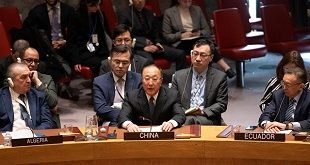
COMMENT: By Patrick Ajuna
The education reforms that are needed to tackle unemployment, rampant poverty, and hopelessness
Greetings Mama Janet! Congratulations upon your re-appointment to the cabinet as our new Education and Sports Minister.
Allow me to add my voice to the many in welcoming you to the highest office in our education sector. Your placement at the helm of education ministry would not have come at a better time given the status of our education with many quality issues and challenges.
Mama Janet, you have always served with selfless determination, decisiveness, pragmatism, and humility. For Instance, the different programmes, projects, and activities you spearheaded in Karamoja sub-region as the area minister, where some people were not willing to serve, and/or their impact as leaders of the area previously was not visible, speaks volume. I believe such programmes will help to empower those disadvantaged people of Karamoja.
It is that same servant leadership and calibre that is required in the education sector to sort out the critical issues and quality challenges with decisiveness and action. Besides, you are a professional teacher and, therefore, rightly placed to where you belong.
Allow me to highlight some core issues you might want to deal with:
First, the issue of the new curriculum; the government through the National Curriculum Development Centre (NCDC) formulated a new ‘O’ level curriculum in 2014 which was due for implementation in 2018. This was in response to the general appeals to the government for educational reforms and the public outcry due to the numerous challenges and problems emanating from our defective colonial education curriculum. The challenges include widespread unemployment (which is estimated at the rate of 3.5 percent, 32.2 percent and 36 percent for national, youth, and university graduates respectively), and rampant poverty and hopelessness especially among the graduates.
The new curriculum is practical-oriented, that is, it is supposed to impart practical and employable stills for self- sustenance in the future life of learners. Some subjects on the old curriculum were merged while others were dropped and new fields/areas of study introduced in the new curriculum.
Such a development would ideally mean massive retraining and training of teachers to equip them with the relevant knowledge and skills in line with what the new curriculum demands for effective implementation. Conducting a pilot study is a pre-requisite to determine the best workable means and strategies for the successful implementation of such a new curriculum.
However, apart from the pilot study which is planned to be conducted next year, there is no clear roadmap for other relevant activities in the pre-implementation stage, yet this new curriculum has been rescheduled to be rolled out in 2018. This means that like some other previous educational policies, such as Universal Primary Education (UPE), this new curriculum may suffer a still birth and its associated implications. If all the necessary arrangements and interventions are made, however, it can lead to efficient and effective education delivery to realise meaningful results.
Secondly, the issue of teachers’ quality: It is good you rightly observed, as you were releasing the 2015 Grade III teachers’ certificate examination results on July 8, that teachers must be adequately equipped with knowledge and skills so that they can be in position to shape the country’s human resources to realise Vision 2040.
While it is very necessary to raise the entry points in teacher training institutions to achieve quality teachers as suggested, such an intervention is necessary but not sufficient to bring about quality teachers.
The sufficiency requires providing the incentives to make Grade III teacher education as attractive as pursuing ‘A’ level for the very best students in the Uganda Certificate of Education or O’ level examinations.
A similar arrangement should obtain for teacher education at the university level by making it (teacher education) as attractive as courses like law and medicine so as to tap some of the very best students in teacher education besides encouraging those already in service to pursue further education and training.
However, the existing arrangement in Public service as regards to teachers is that the Grade III certificate and its corresponding salary scale U7, and a bachelor’s degree and its corresponding salary scale U4 are the maximum recognised and directly rewarded educational levels for a primary school teacher and a secondary school teacher respectively.
Relatedly, the teachers’ scheme of service which was introduced in 2008 provides for among others, the promotion of some teachers to higher ranks in teaching service in recognition for distinguished and exemplary service. While some would be promoted to positions of headships (teacher and deputy head teacher) as the government has always done, some teachers would be promoted to higher ranks, say to senior education officer but remain classroom teachers with an improved pay. This is intended to cater for those who qualify to be promoted to headship positions but are unable to be promoted due to limited public schools.
However, this policy has however not been well implemented as provided for by its formulators.
Such issues not only kill the morale for further studies but are also responsible for high rates of turnover among teachers in public schools. These call for a policy shift to create conditions that promote continuous education and training since teachers are the engine for any education endevours and in realising quality human resources of any kind.
Thirdly, the role of parents: With the introduction of UPE and Universal Secondary Education (USE), many parents misinterpreted those government policies as totally free education. As a result, they not only gave up their responsibility of providing informal education of inculcating morals to their children but also neglected their duty of providing scholastic materials and meals.
Besides, they do not bother to make a follow up in visiting schools to establish whether their children are learning or not.
Such a situation necessitates efforts to bring parents back on board. One of the means can be the reinstatement of a minimum, mandatory, and reasonable fee (PTA contribution) to cater for feeding of the learners and teachers’ salary to raise their morale. This would not only help to make parents concerned and responsible about their children’s learning but is a good mechanism that would make teachers do the real teaching since parents would be encouraged to monitor the teaching in schools to ensure value for their money.
In view of this, massive sensitisation and public awareness would be paramount to inform the parents of their role in as far as education of their children is concerned.
****
Patrick Ajuna is a professional teacher and an educational policy analyst
ajunapatrick@yahoo.com
 The Independent Uganda: You get the Truth we Pay the Price
The Independent Uganda: You get the Truth we Pay the Price


